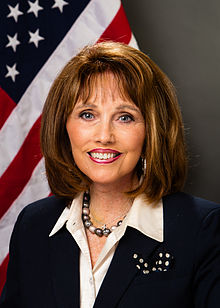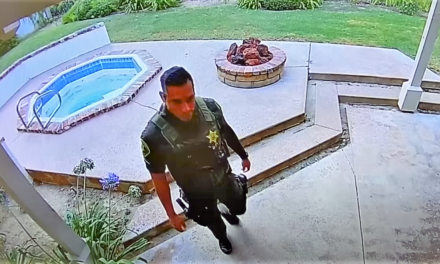
SACRAMENTO–Senator Patricia Bates (R-Laguna Niguel) has introduced Senate Bill 401, which would close a major loophole that allows elected officials and candidates to avoid contribution limits.
SB 401 would subject candidate-controlled ballot measure committees to the same contribution limits currently imposed on candidates for state office. It would close a campaign finance loophole that gain notoriety in the case of former State Senator Leland Yee, who mentioned the loophole when soliciting bribe money from an undercover FBI agent.
“My bill would help even the playing field for election campaigns by closing a loophole that has been legally exploited for years. It’s important to apply the same limits on candidate-controlled ballot measure committees as we do to personal campaign accounts to reduce the influence of special interests,” said Senator Bates. “If the Legislature is truly serious about campaign finance reform, it would close the ballot measure committee loophole this year.”
SB 401 is the reincarnation of the original version of Senator Bates’ SB 1467 (2016). The majority party on the Senate Appropriations Committee ultimately killed a watered down version of SB 1467.
Proposition 34 (2000), which California voters overwhelmingly approved, placed limits on the amount donors could give to state candidates’ and elected officials’ campaigns. However, politicians, candidates, and special interest groups quickly learned that they could get around these limits through a loophole that allows unlimited contributions into candidate-controlled ballot measure committees.
In a 2009 Fair Political Practices Commission (FPPC) report titled “The Billion Dollar Money Train,” the FPPC found that donations to candidate-controlled ballot measure committees shot up a staggering 200,000 percent in the five-year period after Proposition 34 was passed (page 4). By allowing special interest groups to continue giving huge amounts to candidates, this loophole has perpetuated the belief that money can buy influence in the California political system. It has also created an uneven playing field when it comes to state elections, because it allows some candidates to receive unlimited amounts of money from special interest groups, while those without separate ballot measure committees are left at a severe disadvantage.
Currently, candidates are not required to state which ballot measure their committees are formed to support, giving the appearance, at least, that donors are giving to the politicians rather than particular causes. While the FPPC has not taken a position on SB 401, “The Billion Dollar Money Train” report (page 6) once asked, “Is it logical to limit the size of contributions to an officeholder’s committee… and yet allow the same special interests to contribute vastly greater committees controlled by the same officeholders?”
The money raised into candidate-controlled ballot measure committees can be used to benefit candidates and their campaigns, very much like the money in actual campaign accounts. Appropriations from candidate-controlled committees have included thank-you gifts to donors, ads favorably portraying candidates, legal fees, campaign consulting fees, extravagant out-of-state fundraisers, and even a lawmaker’s tuition. At best, these expenditures often have a very tenuous link to ballot measures.
In 2016, Senator Bates co-authored an op-ed with Dan Schnur, former chairman of the California Fair Political Practices Commission, on why they wanted to close the loophole exploited by candidate-controlled ballot measure committees.



